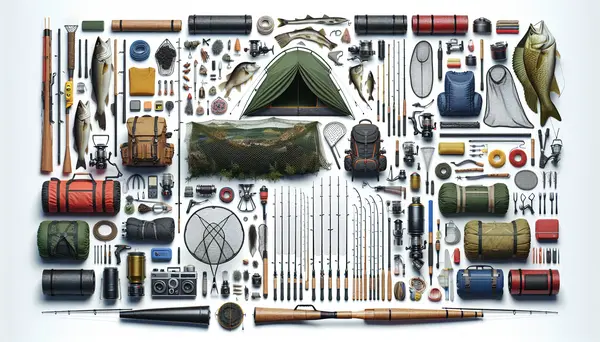Table of Contents:
Introduction to Fishing Gear
If you're new to the world of fishing, or even if you're a seasoned angler looking for an upgrade, it can be overwhelming trying to figure out what gear is essential. This article aims to guide both beginners and experienced fishers through the must-have tools and equipment that make up the ultimate fishing gear. By understanding these essentials, your next fishing trip will not only be more successful but also much more enjoyable.
The Basics: Rods and Reels
No matter what type of fishing you plan on doing, a good rod and reel are fundamental. The right choice depends largely on your target species and preferred method of fishing. For instance, fly-fishing requires specialized rods while spinning reels are versatile enough for most types of freshwater fishing.
Pros and Cons of Different Fishing Gear
| Item | Pros | Cons |
|---|---|---|
| Fishing Rods | Various types for different fishing styles, often versatile | Can be expensive, not all are suitable for all situations |
| Reels | Helps to retrieve the catch easily, can handle heavy lines | May require maintenance, can be difficult to use for beginners |
| Bait and Lures | Attracts a wide variety, specific types can target specific fish | Might not attract all types of fish, requires knowledge on use |
| Fishing Nets | Aids in catching larger fish, prevents harm to fish | Not always practical for every fishing situation, may tangle |
| Tackle Box | Keeps gear organized and easy to find | Can be bulky, heavy to carry especially when full |
Fishing Line: Strength Matters
A strong line is crucial in any fishing gear setup. Monofilament lines are popular due their versatility; however braided lines offer greater strength-to-diameter ratio making them ideal when targeting larger species.
Bait & Lures: Enticing Your Catch
Different fish respond better to different baits or lures so having a variety at hand increases chances of success. Live bait such as worms work well with many freshwater fishes whereas artificial lures mimic prey behavior attracting predatory species effectively.
Hooks: Securing Your Catch
Choosing correct hook size according to targeted fish ensures effective catch-and-release practices minimizing harm done during process. Circle hooks recommended for conservation purposes since they tend reduce deep-hooking incidents compared traditional J-hooks.
Tackle Box: Organizing Your Equipment
An organized tackle box helps keep all necessary items within easy reach. It should contain a variety of hooks, lures, sinkers and other accessories like swivels or leaders.
Additional Must-Have Tools
Beyond the basics, there are several tools that can greatly enhance your fishing experience:
- Fishing Pliers: These come in handy for removing hooks from fish's mouth safely and cutting lines when necessary.
- Fish Finder: This electronic device uses sonar to locate fish underwater making it an invaluable tool especially if you're boat fishing on large bodies of water.
- Landing Net: A landing net helps secure your catch once it’s close enough to the surface preventing accidental losses at last moment.
Safety Gear: Don't Forget!
No matter how experienced you may be as an angler, safety should never be compromised. Always include life jackets (if boating), first aid kits and sunscreen in your fishing gear list.
In Conclusion...
The ultimate fishing gear is not just about having high-end equipment but rather ensuring that all essentials are covered - from basic rods and reels to additional tools enhancing overall experience while maintaining safety standards. Remember each piece has its role play so invest wisely according needs preferences ensure successful enjoyable trips every time! Happy Fishing!
Frequently Asked Questions about Fishing Gear
What is the most essential piece of fishing gear?
The fishing rod is the most fundamental piece of fishing gear. Without it, you will not be able to cast your line into the water.
What other tools would be useful for fishing?
Other essential fishing gear includes fishing reels, tackle boxes, baits, hooks, lines, and a fishing knife for cutting line or cleaning fish.
Can I fish without a fishing net?
Yes, it is possible to fish without a net, but a good net makes it easier to land fish, especially larger ones, and reduces the chance of the fish escaping.
What is the benefit of a fishing vest?
A fishing vest is practical as it allows you to have easy access to your commonly used tools and it organizes your gear, keeping it readily available at all times.
What is the role of a fishing hat?
The fishing hat protects you from the sun, reducing the likelihood of heatstroke. Some fishing hats also have loops or clips to hold tools and tackle.







